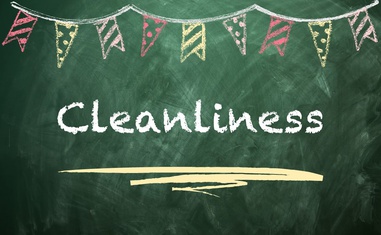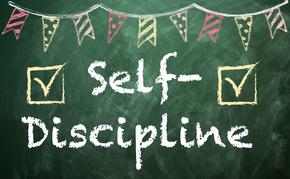Normally we think of cleanliness as keeping our body and physical surroundings clean – but it’s also about developing a pure heart and helping our soul stay unstained.
We all feel better after a shower or a bath – it not only refreshes our bodies, but our minds and spirits too. Cleanliness of thought and purity of heart can help us feel peaceful, happy, and healthy. The Baha’i teachings place a great emphasis on cleanliness – both physical and spiritual. The Baha’i writings even say that our physical cleanliness conduces to spirituality. Abdu’l-Baha wrote:
First in a human being’s way of life must be purity, then freshness, cleanliness, and independence of spirit. First must the stream bed be cleansed, then may the sweet river waters be led into it. … in every aspect of life, purity and holiness, cleanliness and refinement, exalt the human condition and further the development of man’s inner reality. Even in the physical realm, cleanliness will conduce to spirituality, as the Holy Writings clearly state.
For these important reasons, building habits of cleanliness in our day-to-day lives will have a positive impact on our spiritual existence.
Physical cleanliness may sound very ordinary, and many might think of it as obvious. However, not everyone is brought up or educated to practice cleanliness the proper way. For example, as the pandemic has reminded everyone, some people do not wash their hands after going to the bathroom, which can transfer germs and cause diseases to spread.
In many places, cleanliness requires a struggle. For some countries, maintaining hygiene by providing suitable bathroom facilities or building a proper sewage system does not exist, or is of a lower priority. In some places, girls are often cleaner than boys because boys are not expected to actually clean themselves properly. Thus, boys in some cultures grow up not knowing the importance of sanitation.
Practicing cleanliness means we need to wash our clothes and our bodies, so we’re always fresh and clean. Regardless of our gender we need to learn to keep our hair clean and well-groomed. Also, we need to help our children from a young age to learn practicing cleanliness, with chores such as cleaning their rooms, organizing their drawers, and washing their clothes with the help of their parents. We can also teach our children, regardless of their gender, to do their share to help the family keep the home in order.
To empower the family and our children we can mix and match the cleaning chores, so that everyone regardless of their gender gets to have an equal opportunity for cleaning everything in the house.
Baha’u’llah, the founder of the Baha’i Faith, wrote “Be ye the very essence of cleanliness amongst mankind. This, truly, is what your Lord, the Incomparable, the All-Wise, desireth for you.” Practicing cleanliness doesn’t just involve our outward aspects – it also means drinking clean water, eating healthy and nutritious foods, and avoiding harmful drugs.
But more importantly, how about our spiritual cleanliness? Our hearts are like a mirror – they reflect what we expose them to. When we keep our hearts clean, they can reflect the light of God and His attributes. In a sense, our hearts are like a physical gate that connects us to our souls. Practicing our inner virtues and saying prayers daily can help us polish our hearts – and as a result, allow our souls to progress and grow.
Prayers are like food for our souls, opening a channel that allows us to have a conversation with God. In order for our prayers to reach God, we need to be physically clean. Abdu’l-Baha, the exemplar of the Baha’i Faith, explained that “… although bodily cleanliness is a physical thing, it hath, nevertheless, a powerful influence on the life of the spirit.”
The final aspect of cleanliness involves mental wellness. Practicing mental health means focusing on positive and constructive thoughts in our daily lives. We must put some time aside to meditate and pray for our mental health daily. Moreover, when we have negative thoughts, says Linda Popov in The Family Virtues Guide, we need to understand the reasons behind them and then replace them with constructive and positive solutions.
We clean our minds by living a purposeful life, focusing on good things like service to others, and consistently trying to improve ourselves. The virtue of cleanliness helps us be physically, mentally, and spiritually pure. This Virtues Basket video teaches our children from a very young age about what cleanliness is and how to practice it daily.
Setareh Samandari Zargarpour has always been an artist at heart, after a 20-year career in Banking as Branch Manager for Wells Fargo and Chase she transitioned to working in Film. She had finished her Master of Arts in Political Science from CSUN and utilized it...
READ MORE
















Comments
Sign in or create an account
Continue with Googleor